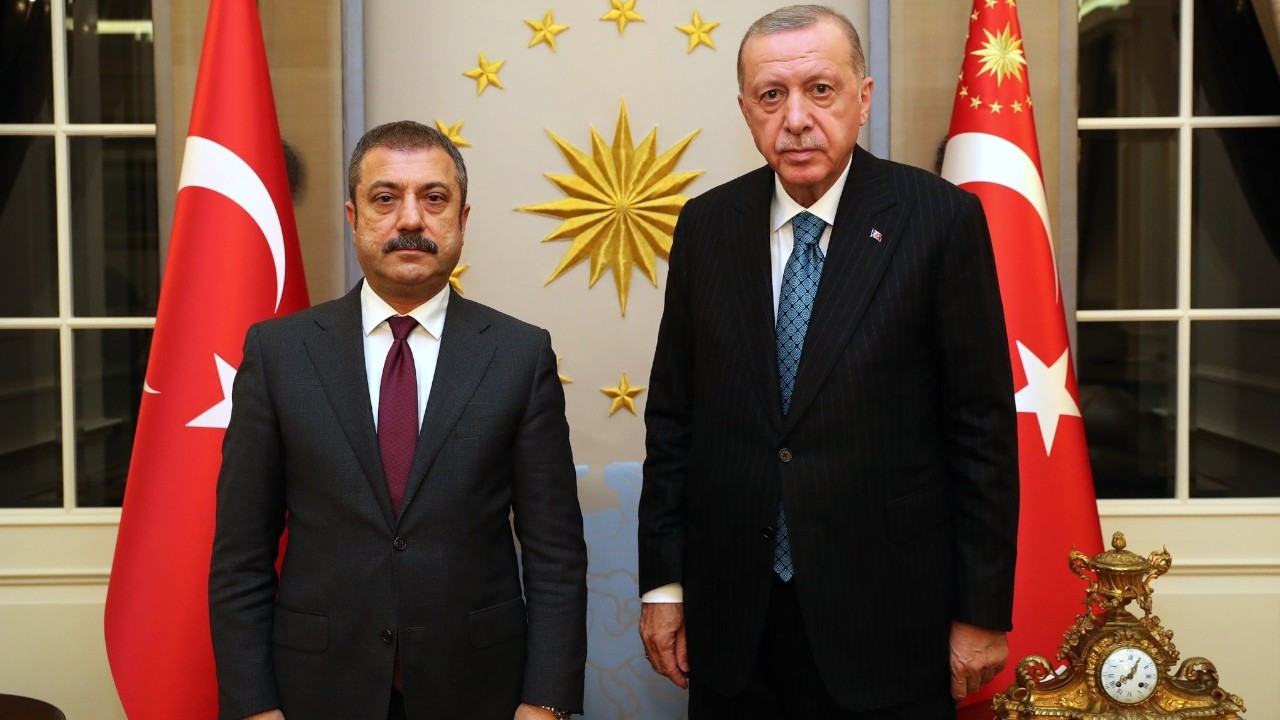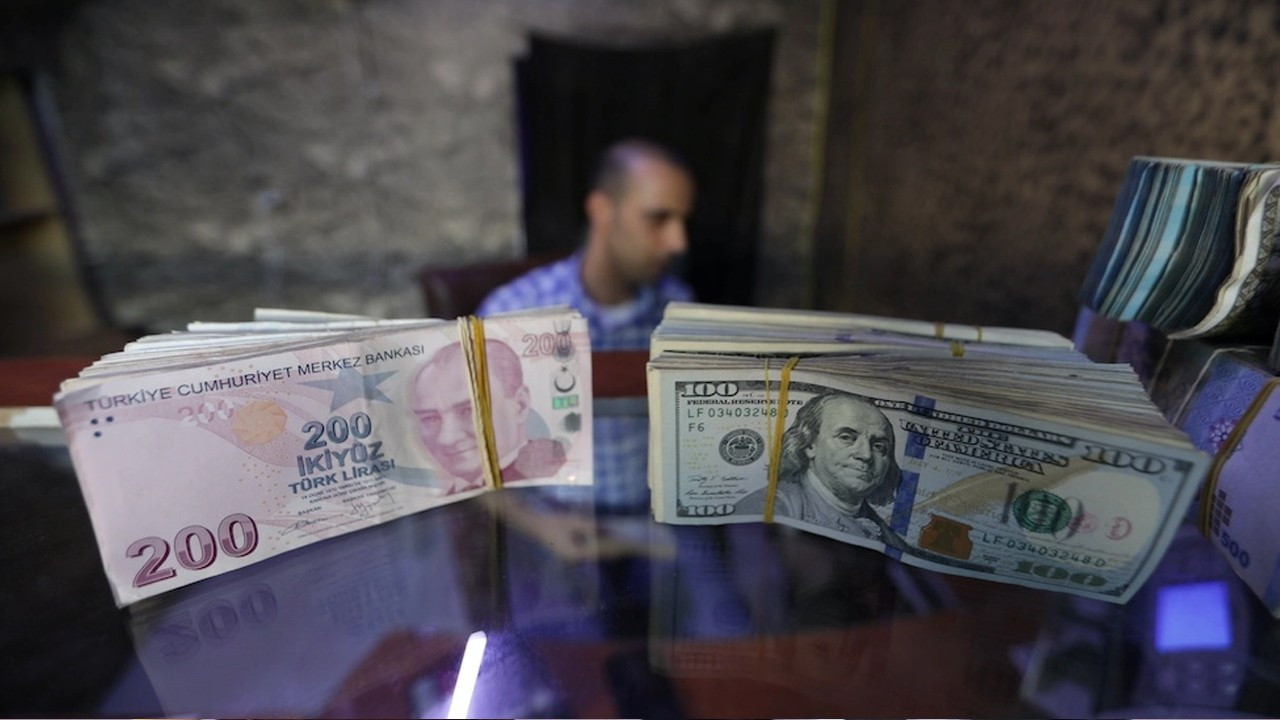Erdoğan's central bank overhaul clears way for more rate cuts
Turkish President Tayyip Erdoğan dismissed three central bank policymakers on Oct. 14, two of whom were seen to oppose the last interest rate cut, clearing the way for more policy easing and sending the lira to a new all-time low.
Reuters
Turkish President Tayyip Erdoğan dismissed three central bank policymakers on Oct. 14, two of whom were seen to oppose the last interest rate cut, clearing the way for more policy easing and sending the lira to a new all-time low.
Analysts viewed the move - announced at midnight in the Official Gazette - as fresh evidence of political interference by Erdoğan, a self-described enemy of interest rates who frequently calls for monetary stimulus.
With no explanation for the decision, Erdoğan fired deputy governors Semih Tümen and Uğur Namık Küçük, along with the longest-serving monetary policy committee (MPC) member, Abdullah Yavaş, the gazette said.
He appointed two new members - Taha Çakmak as a deputy and also Yusuf Tuna - who are little known at the central bank or among economists, leaving the MPC with little monetary policy experience after a years-long overhaul by the president.
Two sources familiar with internal deliberations said Küçük and Yavaş were ousted after disagreeing with last month's 100 basis-point rate cut, which at the time surprised investors and sent the currency tumbling.
On Oct. 14 the lira weakened as much as 1% to a record low of 9.1900 against the dollar after the announcement before paring losses.
The currency has shed some 19% this year, primarily due to the central bank's bruised credibility and worries among investors and savers over premature rate cuts in the face of inflation that has risen to near 20%.
"The lira has lost its institutional support in recent years ... and last night's changes strongly indicate that the central bank is no longer capable of managing Turkey's monetary policy," said Arda Tunca, economist at Eko Faktoring.
The combination of monetary policy and financial regulations have left the "Turkish economy extremely fragile," he added.
Last month the central bank cut its policy rate to 18% as Erdoğan - sliding in opinion polls and keen to boost credit and exports - had publicly sought. Most analysts called the easing a mistake at a time of accelerating global inflation.
Turnaround
The MPC overhaul came after the presidency said on Oct. 13 evening that Erdoğan had met Central Bank Governor Şahap Kavcıoğlu and it published a photo of the two men together.
That marked a turnaround from last week when Reuters reported, citing three sources, that Erdoğan was losing confidence in Kavcıoğlu and that the two had communicated little in recent weeks.
Though the MPC has seen a rapid turnover this year, Kavcıoğlu pushed for changes in recent days, according to one of the sources with knowledge of the matter.
"Kavcıoğlu sort of cleared the path to be able to cut rates more quickly with the new members," the person said. Now, those who were distant towards rate cuts have been removed."
Erdoğan named Kavcıoğlu governor in March.
In just over two years, Erdoğan has abruptly fired three bank governors over policy differences, a dizzying display of political interference that badly hit the bank's credibility and predictability.
"Firing central bank officials in the middle of the night without a very good explanation is not how you build central bank credibility or bolster market confidence," one foreign investor said on Oct. 14.
Turkey's headline inflation hit a 2-1/2 year high of 19.58% in September, while a core measure - which Kavcıoğlu has been stressing over the last month - was 16.98%.
Internal opposition
Addressing a parliamentary committee this week, Kavcıoğlu said September's rate cut was not a surprise and had little to do with the subsequent lira sell-off.
The bank's next policy-setting meeting is on Oct. 21, when another rate cut is seen as likely.
Market reaction to the changes on Oct. 14 included a jump in the premium demanded by investors to hold Turkish debt over safe haven U.S. Treasuries, based on the JPMorgan EMBI Global Diversified index. It hit 521 basis points, the highest since April, leaving spreads above those of Ukraine and Kenya.
The second source who spoke to Reuters said both Küçük and Yavaş - who missed September's policy meeting - had opposed some recent bank decisions.
Küçük also opposed an unorthodox policy in 2019-2020 of using the bank's forex reserves to support the lira via state bank sales, the person said, adding that Küçük had warned the MPC that failing to keep rates high enough now only leads to even higher rates in the future.
Çakmak, the new deputy governor, was a deputy chairman at Turkey's BDDK banking watchdog from 2019. Previously he held posts at state lender Ziraat Bank, including head of human resources.
Tuna, the other MPC hire, was a professor and also served as management board member at the BDDK from 2003-2009.
"It can be assumed that the newly appointed members of the central bank committee will support Kavcıoğlu's and Erdoğan's monetary policy," said Antje Praefcke, analyst at Commerzbank. "That is not a good omen for the Turkish lira."

 Erdoğan fires three Central Bank policymakers in midnight decreeEconomy
Erdoğan fires three Central Bank policymakers in midnight decreeEconomy Turkish inflation accelerates, reaches 19.58%Economy
Turkish inflation accelerates, reaches 19.58%Economy Turkish lira hits record low amid growing concerns over US tiesEconomy
Turkish lira hits record low amid growing concerns over US tiesEconomy